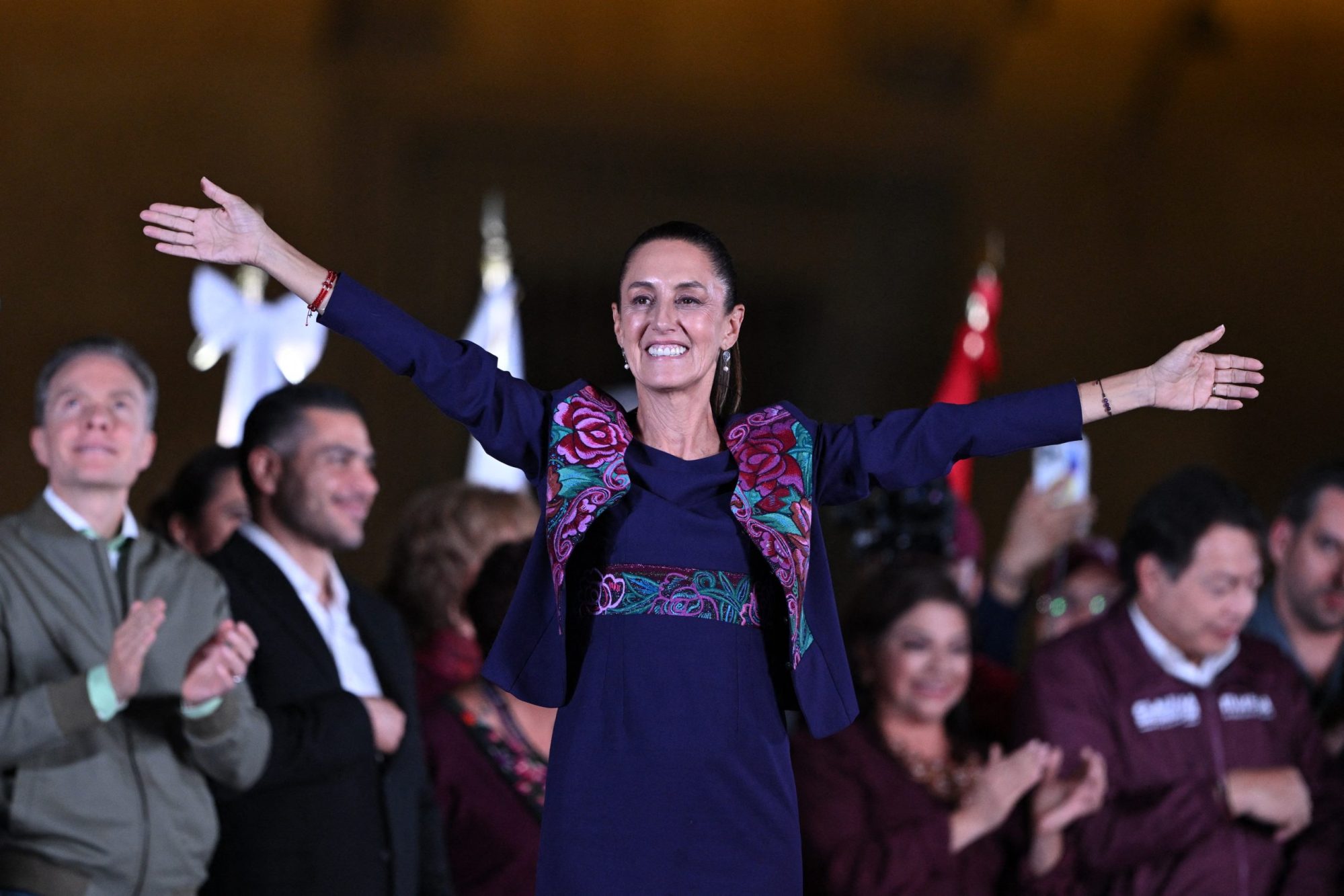
This story originally appeared in Common Dreams on June 3, 2024.
Leftist Claudia Sheinbaum, a close ally of popular outgoing President Andrés Manuel López Obrador, won Mexico’s presidential election in a landslide on Sunday, with an official tally showing her leading right-wing opposition candidate Xóchitl Gálvez by nearly 30 percentage points.
Gálvez called Sheinbaum early Monday to acknowledge the results and concede defeat in what was the largest race in Mexico’s history—a contest marred by deadly violence.
Sheinbaum, a climate scientist and the former mayor of Mexico City, is set to become the first woman and the first person of Jewish descent to lead Mexico after Sunday’s overwhelming victory, which was a boon to her leftist Morena party. According to official vote tallies, The Washington Post reported, Morena and its allies “appeared close to winning a supermajority in Congress, which would allow them to change the constitution.”
“We imagine a plural, diverse, and democratic Mexico,” Sheinbaum told cheering supporters on Sunday. “Our duty is and will always be to look after each and every Mexican, without distinction.”
David Adler, co-general coordinator of Progressive International, called Sheinbaum and Morena’s win “epic, whopping, [and] historic.”
While Sunday’s contest—which involved more than 20,000 government positions—and outcome were unprecedented, some questioned whether the results would be truly transformative for Mexico, where poverty and inequality remain high despite minimum wage hikes and other progress made in recent years under the government of López Obrador, commonly known as AMLO.
“AMLO has done a little better for people than prior governments, and Sheinbaum has pledged to continue his political approach, though with a greater emphasis on sustainability,” Tamara Pearson, a Mexican Australian author, journalist, and activist, wrote for The Nation ahead of Sunday’s race. “The pension for informal workers has increased to 6,000 pesos ($359) every two months. The health system for informal workers, which includes most Mexicans, is still extremely lacking but has improved.”
The outgoing president has also faced backlash for pursuing fossil fuel infrastructure projects that risk damaging Indigenous communities and the planet.
Mongabay‘s Maxwell Radwin noted last week that Sheinbaum—who contributed to a major Intergovernmental Panel on Climate Change (IPCC) report—”continues to support one of AMLO’s most polarizing projects, the Tren Maya, a 1,554-kilometer (966-mile) railroad crossing the Yucatán Peninsula.”
“Despite dozens of legal complaints about deforestation, the destruction of cave ecosystems, and the relocation of Indigenous communities,” Radwin observed, “she’s defended the project and even suggested expanding it to a major port in the town of Progreso, in northwest Yucatán.”
With Mexico facing a devastating heatwave and other climate impacts, Sheinbaum has pledged to prioritize clean energy development, vowing to “lead a $13.6 billion program to jumpstart Mexico’s renewable energy sector,” Politicoreported.
Sheinbaum is set to take office in October.


